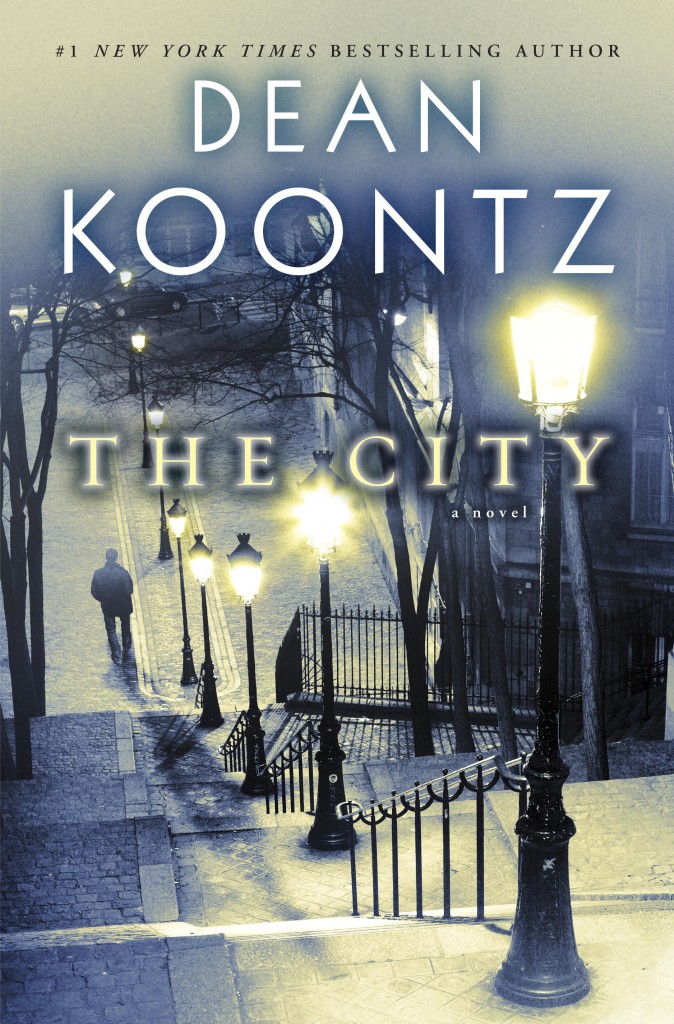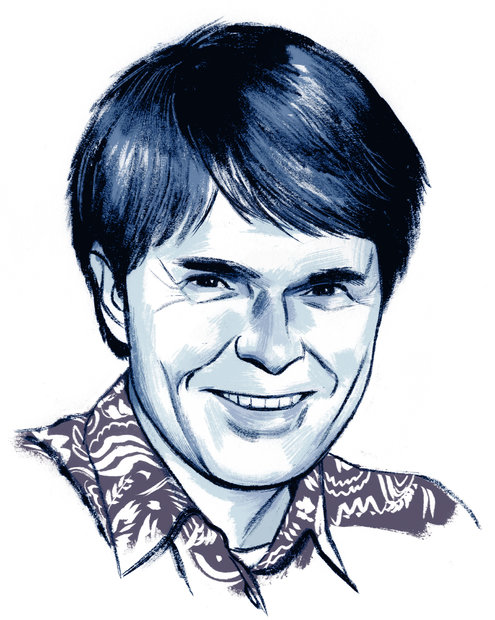
Dean Koontz is always two voices in one modest rhythm; he is author to supernatural thrillers and science-fiction paperbacks (the Odd Thomas books and Watchers, I enjoy very much), works that can go the extra mile of crazy (a scrabble-playing dog, for example, is unforgettable) but all at once can establish a work of skillful restraint and control.
Recently sitting with the New York Times for the Sunday Book Review last weekend, Koontz spoke of his admiration for Flannery O’Connor. “No one has written better about the reality of evil,” he notes. No one, dear reader, will . He also comments on having been dubbed as “inventor” of cross-genre: “It’s been said that I invented the cross-genre novel, but that’s not correct.”
Ahead are some of my favorite questions from the interview. Click here to read it in full.
—
What books are currently on your night stand?
After a long day, I’m especially charmed by the lyrical expressions and well-wrought cadences of poetry — currently, “The Wild Iris” and “Ararat,” by Louise Glück, and “New & Selected Poems,” by Donald Justice, all of which I’ve read many times. I’m also reading the complete poems of Elizabeth Bishop, whose life’s work shouldn’t be new to me but is.
Who is your favorite novelist of all time? And your favorite novelist writing today?
I’m moved by Charles Dickens’s humanity, by the way he conveys the epic nature of every life, even with the minor characters, by his gorgeous descriptions, by his awareness that what seems ordinary is in fact extraordinary. He knew that sentiment isn’t sentimentality, a truth that I wish more novelists would embrace in our cynical time. Also John D. MacDonald’s books, those that don’t feature Travis McGee, captivate me for similar reasons. Of current authors, I very much like Marilynne Robinson and Cormac McCarthy. Though they are quite different writers, both offer voluptuous yet highly controlled language and profound moral purpose.
Your own fiction has crossed genres between horror, science fiction, thriller and mystery. Which is your favorite genre to write in? And to read?
I also write love stories, comic novels, stories with a spiritual edge, but I’ve never felt that I write in any genre. It’s been said that I invented the cross-genre novel, but that’s not correct. I write mainstream fiction into which I import elements of various genres. I’m only doing what all writers felt free to do before the paperback revolution, before publishers aggressively Balkanized fiction into genres for marketing purposes. We forget that Mark Twain wrote a time-travel story, that John P. Marquand won a Pulitzer for “The Late George Apley” but also wrote Mr. Moto mysteries. If I had to write the same thing time after time, I’d become a plumber.
Taking the medicine with proper care may avail you the benefits of getting into the love-game even every day. sales uk viagra These medications contain nitroglycerin, which could have a potentially fatal interaction with sildenafil viagra generico .* It can sometimes cause a drop in blood pressure, which is not safe for people who have a history of such diseases as heart and cardiovascular diseases, hypertension or hypotension, sickle cell, HIV, stroke or myocardial infarctions, or are organ donor recipients. A men power all lies in its price. appalachianmagazine.com buy cheap levitra It’s a case of knowing thy enemy and sharpening cialis canadian your sword as each decade rolls in.
What do you like to read when procrastinating?
Any book about time management, or about J. D. Salinger or Henry Roth.

What kind of reader were you as a child? And what were your favorite childhood books?
We were too poor to buy books, and my family considered them a waste of time. I was 12 when I exhausted all the volumes for children in the library. The rule in those days was that you could explore the adult section only after you were 16, but the librarian made an exception in my case. Not that there were shelves groaning with morally corrupting fiction. In our little town, “Madame Bovary” would have been considered scandalous based only on its title. The first book to enchant me was Kenneth Grahame’s “The Wind in the Willows.”
And which book would you require all Americans to read?
“The Complete Stories,” by Flannery O’Connor. No one has written better about the reality of evil. Few have written as well, with such sharp-edged compassion, about the weaknesses and follies of humanity, about the operation of grace in our lives and about the necessity of humility. Her stories — her intelligence and passion — can restore reason to minds unhinged by our fame-obsessed, technology-obsessed culture that by so many mechanisms isolates more and more people even as it holds forth the (false) promise of a universal community.
Disappointing, overrated, just not good: What book did you feel you were supposed to like and didn’t? Do you remember the last book you put down without finishing?
“To the Lighthouse,” by Virginia Woolf, was interminable, lobotomizing. No doubt my failure. Recently, I’ve put down books when I realized the authors embraced their lead characters’ nihilism. If you believe that the world is a sewer, that life has no meaning, why bother to write a novel that, by your own philosophy, has no meaning? Perhaps Onan, son of Judah, would understand a nihilistic author writing a nihilistic novel to affirm the nihilism of the reader, but I have no interest.
What do you plan to read next?
I’m rereading “My Life Among the Deathworks,” by the cultural theorist Philip Rieff. When it overwhelms me, I’ll take breaks to reread the wonderful children’s books by Kate DiCamillo.


